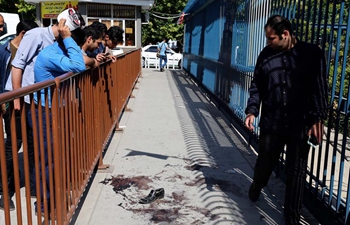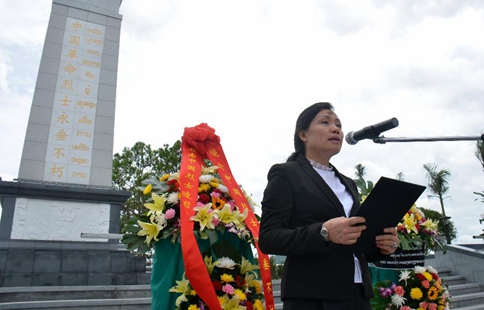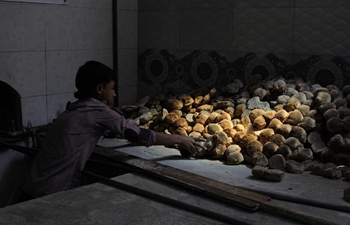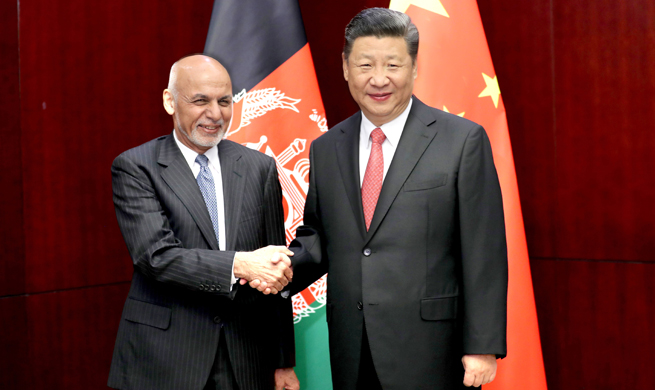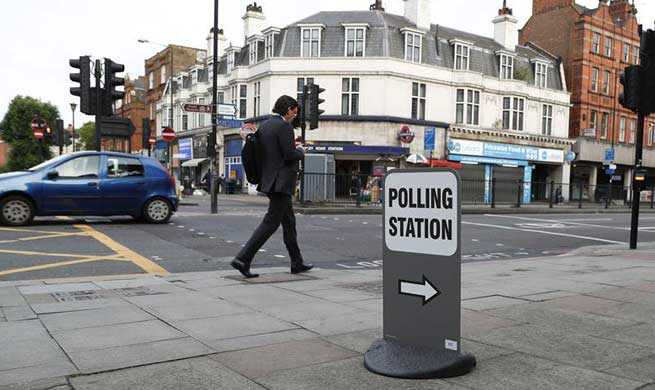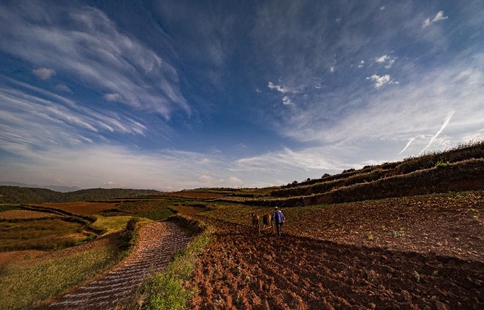by Mohamed al-Azaki
SANAA, June 8 (Xinhua) -- Early this week, one-year-old Yemeni boy Ali Abdullah suddenly fell sick with vomiting and severe diarrhea.
Living in a remote mountainous village in Nehm district northeast of Yemen's capital Sanaa, his father Abdullah took him to the village's only clinic, where the boy was diagnosed with cholera disease.
The doctor advised Abdullah to quickly take his son to hospitals in Sanaa, as his clinic lacks of appropriate medicines because of the two-year long war and siege.
Nehm, about 90 km northeast of Sanaa, has been the scene of almost daily clashes between exiled President Abd-Rabbu Mansour Hadi's government forces and their foe of Shiite Houthi rebels who control the capital and much of the northern provinces.
The boy Ali was then admitted in hospital in the west of the capital Sanaa, a private hospital with its cholera treatment section supported by the Yemeni health ministry and United Nations humanitarian agencies to ease the burden of the state-run crowded hospitals.
"Ali is now undergoing a treatment for the fourth day in this hospital," his father said, adding that he hoped his son would recover soon.
Terrified of losing his son, Abdullah spoke of his wish that they could continue life in a "healthy and normal" manner.
"I wish that the cholera outbreak, war and siege come to an end," he added.
The war-torn Arab country has been fighting a major cholera outbreak since April 2017. The death toll of the confirmed disease cases reached 789, while suspected cases reached 101,820 on Thursday, according to the World Health Organization data.
Elsewhere in downtown Sanaa, more patients suspected to be infected with cholera keep arriving at Al-Sabeen hospital, which is the largest state-run hospital in the city.
Hadiyah Hussien, 80, had suffered severe diarrhea and vomiting for three days until she went into coma before she was rushed into Al-Sabeen hospital from her village in Amran province, some 50 km north of Sanaa.
"I want to live," Hussien said, as she has been in hospital for two days receiving IV treatment.
"The hospital has been receiving more and more cholera-infected patients, mostly elder people and children ... because of their weak immunity and the spread of dirty sewage water and rubbish piles," said the doctor, Ismail al-Mansouri.
The doctor also complained of acute shortage in medicines and beds in the hospital.
"There was increasing number of suspected cholera-infected patients during this week while the capacity of this hospital is limited and there are very big shortage in beds and medicines," the doctor said.
Rahaf Abdullah, a six-year-old girl, lies in a nearby bed suffering from the same disease. Her mother sits beside her.
"My daughter had suffered from severe diarrhea and vomiting for two days, and then she went into coma before I brought her to the hospital," said the mother, who lives in Sanaa.
Hamza Faris al-Joufi, an eight-year-old boy, lies in a nearby bed. His father Faris said the boy was infected with cholera four days ago, adding that he was also very worried about the money needed to take care of his son.
The capital Sanaa and northern provinces have been under control of Houthi rebels since late 2014 after the rebels marched from their stronghold in the far north of Saada province and stormed Sanaa and other provinces in September 2014.
The rebels then expelled the internationally recognized President Hadi along with his government, triggering a military intervention and sea-air-land siege in March 2015 by a Saudi-led coalition forces backing Hadi to try to recapture northern provinces, including the capital Sanaa.
The war and all-out blockade since more than two years ago have caused severe shortage of imports of medicines and food.
The sewage systems and rubbish collection have all stopped and now rubbish piles can be seen spread across the streets and neighborhoods of all northern cities, including Sanaa.
The World Health Organization has warned that the healthcare system in Yemen is on the verge of collapse as many hospitals have shut down because of the ongoing war, saying only 45 percent of Yemen's hospitals are operational, and they are facing a shortage of supplies and staff.
The war has so far killed more than 10,000, half of them civilians, and displaced over 2 million others, according to humanitarian agencies.







